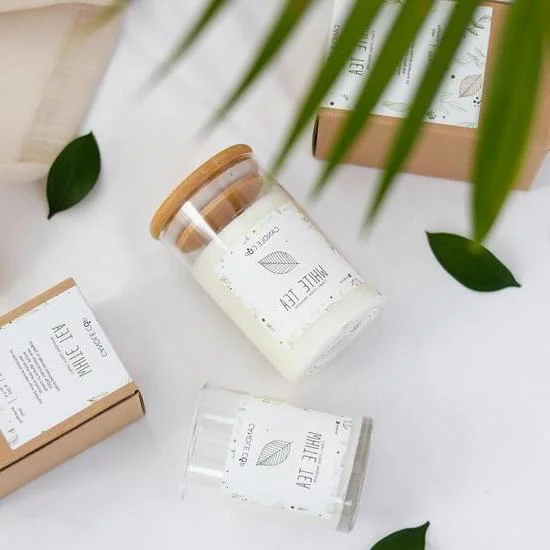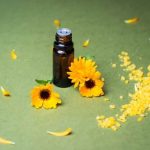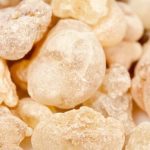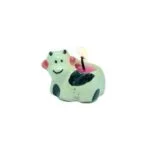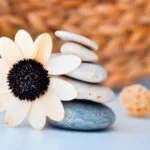Aromatherapy, an ancient healing practice that utilizes essential oils to promote overall well-being, has gained recognition in the healthcare community for its therapeutic benefits. The American Holistic Nurses Association (AHNA) has been at the forefront of promoting holistic healthcare practices, including the integration of aromatherapy into nursing care. This article aims to explore the origins and principles of aromatherapy, as well as delve into AHNA’s role in advocating for this complementary therapy within nursing.
Aromatherapy traces its roots back to ancient civilizations, where aromatic plant extracts were used for their medicinal and spiritual properties. Today, aromatherapy is widely recognized for its ability to relieve stress, enhance relaxation, and improve mood. As part of their commitment to holistic healthcare, the American Holistic Nurses Association has been instrumental in educating nurses about the benefits of incorporating aromatherapy into patient care.
By highlighting the positive impact of aromatherapy on nursing and patient outcomes, this article seeks to provide a comprehensive understanding of how essential oils can be effectively utilized in a healthcare setting. Additionally, it will share real-life examples and case studies demonstrating the successful use of aromatherapy in managing pain, reducing anxiety, and promoting overall comfort for patients.
It will also discuss best practices and safety considerations for using essential oils in nursing practice. Through such exploration, nurses can gain valuable insights into integrating aromatherapy into their holistic nursing care plans.
Benefits of Aromatherapy in Nursing
Aromatherapy has become an increasingly recognized and valued practice within the nursing field, offering a wide range of benefits for both patients and healthcare providers. The American Holistic Nurses Association (AHNA) has played a significant role in promoting the use of aromatherapy as part of holistic healthcare practices. With its focus on integrative and patient-centered care, AHNA has been instrumental in advocating for the incorporation of aromatherapy into nursing practice.
Positive Impact on Nursing and Patient Care
Aromatherapy has been shown to have a positive impact on nursing and patient care in various healthcare settings. By utilizing essential oils and aromatic compounds derived from plants, nurses can create a soothing and therapeutic environment for their patients.
Aromatherapy has been linked to reducing stress, anxiety, and pain levels in patients, ultimately enhancing their overall well-being. Additionally, nurses themselves can benefit from aromatherapy as a means of self-care, helping to alleviate the stress and emotional toll that comes with their demanding roles.
Improving Patient Outcomes
Numerous studies have demonstrated the potential of aromatherapy to improve patient outcomes across different healthcare contexts. From reducing preoperative anxiety to easing postoperative nausea, aromatherapy has proven to be an effective adjunct therapy in enhancing recovery and healing processes. In palliative care settings, aromatherapy has also been utilized to provide comfort and promote relaxation for terminally ill patients. By integrating aromatherapy into nursing care plans, healthcare providers can offer more comprehensive support for their patients’ physical, emotional, and psychological needs.
AHNA’s Advocacy for Evidence-Based Aromatherapy Practices
The American Holistic Nurses Association is committed to promoting evidence-based practices within the realm of holistic healthcare, including the use of aromatherapy in nursing. Through educational initiatives, research support, and advocacy efforts, AHNA aims to ensure that nurses are equipped with the knowledge and resources needed to utilize aromatherapy safely and effectively in their practice.
By emphasizing evidence-based approaches to aromatherapy, AHNA contributes to elevating this complementary therapy as a valuable component of patient-centered care within the nursing profession.
Aromatherapy Techniques and Practices
Aromatherapy, as promoted by the American Holistic Nurses Association, is a complementary and alternative medicine practice that utilizes essential oils and aromatic plant compounds to improve a person’s physical, emotional, and spiritual well-being. In nursing, aromatherapy has gained popularity for its potential to enhance patient care and promote holistic healing. There are various methods and approaches to utilizing aromatherapy in nursing, each with its own unique benefits and considerations.
One commonly used technique in aromatherapy is inhalation, where the aroma of essential oils is inhaled directly or through steam inhalation. This method is believed to stimulate the olfactory system and can have immediate effects on emotions and mood. Another popular practice is topical application, where diluted essential oils are applied to the skin through massage or other techniques. When used safely and appropriately, topical application of essential oils can provide localized relief from pain and inflammation, among other benefits.
It is important for nurses to be knowledgeable about best practices and safety considerations when using essential oils in a healthcare setting. The American Holistic Nurses Association offers educational resources and guidelines for healthcare professionals interested in incorporating aromatherapy into their practice. By being informed about proper dilution ratios, contraindications, and potential interactions with medications, nurses can ensure the safe and effective use of aromatherapy for their patients.
| Aromatherapy Technique | Purpose |
|---|---|
| Inhalation | Stimulates the olfactory system and can impact emotions |
| Topical Application | Provides localized relief from pain and inflammation |
Case Studies and Success Stories
The use of aromatherapy in nursing has led to numerous success stories and positive outcomes for patients. By incorporating essential oils and aromatherapy techniques into patient care, nurses have been able to effectively manage pain, reduce stress, and improve overall well-being.
One notable success story comes from a hospital where lavender aromatherapy was introduced in the post-anesthesia care unit. Patients who were exposed to the scent of lavender reported lower levels of pain compared to those who did not receive the aromatherapy treatment.
Another case study highlights the impact of aromatherapy on patient comfort in hospice care. By diffusing gentle scents such as chamomile and ylang-ylang, nurses were able to create a soothing environment for patients at end-of-life stages. This not only helped alleviate anxiety and discomfort but also provided emotional support for both patients and their families during difficult times.
The
American Holistic Nurses Association
plays a crucial role in documenting these success stories and promoting evidence-based practices in aromatherapy. Their work in advocating for holistic healthcare practices has contributed to the integration of aromatherapy into nursing care plans across various healthcare settings.
| Nursing Setting | Positive Outcome |
|---|---|
| Post-anesthesia care unit | Lavender aromatherapy led to lower levels of pain reported by patients |
| Hospice care | Aromatherapy created a soothing environment for end-of-life patients and provided emotional support for families |
| Various healthcare settings | The American Holistic Nurses Association’s advocacy contributed to integrating aromatherapy into nursing care plans. |
The Role of the American Holistic Nurses Association in Aromatherapy Education
The American Holistic Nurses Association (AHNA) plays a crucial role in promoting holistic healthcare practices, including the use of aromatherapy in nursing. As an organization dedicated to advancing holistic nursing and patient well-being, the AHNA offers valuable resources and educational opportunities for nurses interested in incorporating aromatherapy into their practice.
Resources for Nurses
One of the primary roles of the American Holistic Nurses Association in aromatherapy education is providing resources for nurses to enhance their knowledge and skills in this area. The association offers workshops, webinars, and conferences focused on aromatherapy techniques and best practices. Additionally, the AHNA provides access to online forums and communities where nurses can connect with experts and peers to learn about the latest developments in aromatherapy.
Promoting Evidence-Based Practices
Another important aspect of the AHNA’s role in aromatherapy education is its emphasis on evidence-based practices. The association actively promotes research and clinical evidence supporting the use of aromatherapy in healthcare settings. By staying abreast of the latest scientific findings, the AHNA ensures that its educational programs are rooted in sound evidence, thus empowering nurses to utilize aromatherapy safely and effectively in their practice.
Advocacy and Professional Development
In addition to providing education and resources, the American Holistic Nurses Association advocates for the integration of aromatherapy into mainstream healthcare practices. The association collaborates with industry partners, regulatory bodies, and policymakers to promote greater awareness of aromatherapy’s benefits and encourage its incorporation into holistic nursing care plans. Furthermore, through its support for professional development initiatives, the AHNA equips nurses with the necessary knowledge and skills to advocate for holistic approaches to patient care within their healthcare organizations.
Integrating Aromatherapy Into Holistic Nursing Care Plans
Aromatherapy has become an increasingly popular complementary therapy in the field of nursing, and its integration into holistic nursing care plans can provide numerous benefits for both patients and healthcare providers. The American Holistic Nurses Association (AHNA) recognizes the potential of aromatherapy in promoting overall well-being and has been instrumental in advocating for its use in healthcare settings.
When incorporating aromatherapy into holistic nursing care plans, nurses can utilize a variety of techniques and practices to address the physical, emotional, and spiritual needs of their patients. Some effective methods include diffusing essential oils in patient rooms, applying diluted oils to pulse points during massage therapy, and using inhalation techniques to promote relaxation and stress reduction.
It is important for nurses to consider safety precautions when using essential oils, such as proper dilution ratios and assessing for any potential allergies or sensitivities.
The holistic approach to patient care emphasizes the interconnectedness of mind, body, and spirit, and aromatherapy aligns seamlessly with this philosophy. By integrating aromatherapy into holistic nursing care plans, nurses can provide a more comprehensive and personalized approach to patient treatment. This not only enhances the overall patient experience but also contributes to improved health outcomes.
Aromatherapy and Self-Care for Nurses
Aromatherapy has become an increasingly popular practice within the field of nursing, and its benefits extend not only to patient care but also to nurse wellness and self-care. The American Holistic Nurses Association (AHNA) has been at the forefront of promoting holistic healthcare practices, including the use of aromatherapy in nursing.
By integrating aromatherapy into their own self-care routines, nurses can experience the calming and therapeutic effects of essential oils while managing the stress and demands of their profession.
Utilizing aromatherapy for self-care can have a positive impact on nurses’ overall well-being. Essential oils such as lavender, chamomile, and peppermint are known for their relaxation and stress-reducing properties, making them ideal for use in self-care practices.
Incorporating aromatherapy into their daily routines can help nurses de-stress, improve their mental clarity, and enhance their emotional state. The AHNA recognizes the importance of self-care for nurses and actively promotes the use of holistic approaches such as aromatherapy to support nurse wellness.
Here are some tips for nurses on how to incorporate aromatherapy into their self-care routines:
- Create a calming atmosphere in your home or workspace by diffusing essential oils like lavender or bergamot
- Use a rollerball with diluted essential oils to apply to pulse points for quick relaxation during breaks
- Take a few moments at the beginning or end of your shift to practice deep breathing exercises while inhaling soothing essential oils
- Explore different blends of essential oils that cater to specific needs such as energy-boosting, mood-lifting, or grounding
Incorporating these simple practices into their daily lives can make a significant difference in how nurses manage stress and prioritize their own well-being. The AHNA offers educational resources and support for nurses looking to integrate aromatherapy into their self-care routines, emphasizing the importance of holistic approaches to maintaining health and wellness within the nursing profession.
Future Trends and Developments in Aromatherapy and Nursing
As the field of healthcare continues to evolve, it is important to recognize the ongoing trends and developments in nursing practices. Aromatherapy, in particular, has been gaining traction as an alternative and complementary approach to patient care. The American Holistic Nurses Association (AHNA) has been at the forefront of promoting holistic healthcare practices, including the integration of aromatherapy into nursing care.
One of the future trends in aromatherapy and nursing is the continued research and exploration of its effectiveness in patient care. As more studies are conducted, there is increasing evidence to support the benefits of aromatherapy in managing symptoms such as pain, anxiety, and stress. This trend aligns with the AHNA’s mission to promote evidence-based holistic nursing practices and provide resources for nurses interested in incorporating aromatherapy into their care plans.
Another development in aromatherapy and nursing is the expansion of education and training opportunities for nurses. The AHNA offers various resources and programs related to aromatherapy, including courses, workshops, and certification options. This not only helps nurses acquire the necessary knowledge and skills but also contributes to the standardization of aromatherapy practices within healthcare settings. As more nurses become knowledgeable about aromatherapy techniques and safety considerations, its integration into mainstream nursing practice will likely continue to grow.
Looking ahead, there is also potential for greater collaboration between holistic healthcare providers and traditional medical institutions in utilizing aromatherapy as part of comprehensive patient care. As healthcare systems continue to embrace a more integrative approach to medicine, aromatherapy may become more widely accepted as a complementary therapy alongside conventional treatments. With ongoing advancements in research, education, and collaboration efforts, aromatherapy is poised to play an increasingly significant role in the future of nursing practice.
Conclusion
The American Holistic Nurses Association (AHNA) has played a significant role in promoting holistic healthcare practices, including the use of aromatherapy in nursing. Aromatherapy, which is rooted in the principles of using essential oils to promote physical and psychological well-being, aligns with the holistic approach to patient care advocated by the AHNA. By integrating aromatherapy into nursing practice, healthcare professionals have been able to enhance patient outcomes and overall quality of care.
One of the key benefits of aromatherapy in nursing is its positive impact on patient well-being. Essential oils have been shown to reduce anxiety, decrease stress levels, and improve sleep quality for patients. Additionally, aromatherapy can help manage pain and nausea, making it a valuable tool for improving patient comfort and symptom management. The AHNA has been instrumental in educating nurses about these benefits and providing resources for incorporating aromatherapy into their practice.
In recent years, there have been numerous case studies and success stories that highlight the effectiveness of aromatherapy in nursing practice. These real-life examples demonstrate how essential oils can be used to support holistic healing and create a more nurturing healthcare environment. As the AHNA continues to advocate for evidence-based aromatherapy practices, it is likely that more healthcare facilities will integrate these techniques into their care plans, further establishing aromatherapy as a valuable component of holistic nursing care.
Additional Resources and References
In conclusion, aromatherapy has emerged as a valuable tool in the field of nursing, with the American Holistic Nurses Association playing a pivotal role in promoting its use and providing resources for education and practice. The benefits of aromatherapy in nursing are significant, ranging from improved patient outcomes to enhanced nurse wellness. By incorporating aromatherapy into holistic care plans, nurses can offer a more comprehensive approach to patient well-being.
As evidenced by case studies and success stories, aromatherapy has been shown to positively impact patient comfort, stress reduction, and pain management. The American Holistic Nurses Association recognizes the importance of evidence-based practices and continues to support research and education in this area. Through their efforts, nurses have access to valuable learning opportunities and guidance on implementing aromatherapy techniques safely and effectively.
Frequently Asked Questions
Is Holistic Nursing Recognized by ANA?
Yes, Holistic Nursing is recognized by the American Nurses Association (ANA). The ANA acknowledges holistic nursing as a specialty that focuses on integrating traditional medical care with complementary and alternative therapies.
What Does the American Holistic Nurses Association Do?
The American Holistic Nurses Association (AHNA) is a professional organization that promotes holistic nursing practice, education, research, and collaboration among nurses. They provide resources, training, and networking opportunities for holistic nurses to advance their practice.
Is Holistic Nursing Legit?
Holistic nursing is considered a legitimate and valuable approach to patient care within the nursing community. It emphasizes treating the whole person – body, mind, and spirit – and incorporates both conventional medicine and alternative therapies to promote healing and well-being. Many healthcare institutions now recognize the importance of holistic nursing in improving patient outcomes.

Are you looking for a natural way to improve your health and wellbeing?
If so, aromatherapy may be the answer for you.

